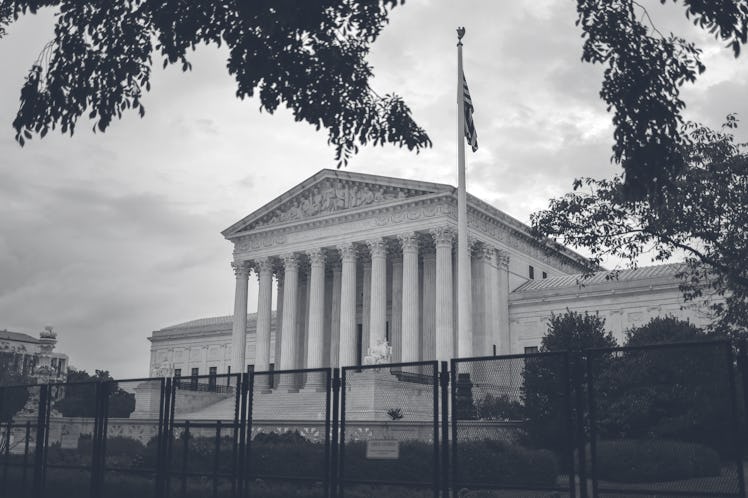13 States Had Abortion “Trigger Bans” Ready — Here’s When They Go Into Effect
Over a dozen states have abortion “trigger bans” — laws set nearly immediately go into effect — for the fall of Roe. Here’s what to know.

One of the first ripple effects caused by the U.S. Supreme Court’s historic decision to overturn Roe v. Wade and outlaw legal and safe abortions is putting the burden of abortion access onto the laws of individual states. Abortion is now outlawed or largely constrained in almost half of the country’s 50 states. Twenty-two states already have laws on the books to prevent legal abortions, including 13 states with trigger laws that have already gone into effect with various abortion restrictions.
Per nonprofit newsroom The 19th and Business Insider, here are when the following state’s trigger laws will go into effect and what the criminal charges now are for performing abortions.
Various trigger laws enacted by the Supreme Court decision now ban abortion and make the procedure punishable by a variety of fines and potential prison time, ranging from $10,000 to $100,000 and felony charges in numerous states. When Roe was overturned, patients waiting in doctor’s offices in states with immediate bans had to be turned away.
States where abortion trigger bans have gone into effect
Arkansas: Abortion is immediately outlawed after the trigger law was signed on Friday, a second-degree felony
Kentucky: Abortion immediately outlawed, a Class D felony
Louisiana: Abortion immediately outlawed, up to a $100,000 fine; temporarily halted
Missouri: Abortion was immediately outlawed after certification by Attorney General on Friday
Mississippi: Abortion immediately outlawed, 1 to 10 years prison time
South Dakota: Abortion is immediately outlawed, Class 6 felony
States where abortion trigger bans will soon go into effect
Arizona: once the Attorney General certifies the law, 10 years in prison or a $100,000 fine
Idaho: July 24, a felony offense with 2 to 5 years prison time for providers
North Dakota: Abortion to be outlawed once certified by the state, Class C felony
Oklahoma: Once the Attorney General certifies the law
Tennessee: Outlawed starting July 24, Class 6 felony
Texas: Outlawed starting July 24, a first-degree felony and $100,00 fine
Utah: Once the state legislative body certifies the law; temporarily blocked
Wyoming: Outlawed starting June 29
Not every state has a trigger law, and various states uphold the right to legal abortions in their statutes. ABC News has a guide to how all states — not just those affected by trigger laws — are grappling with abortion bans in the wake of the 6-3 Supreme Court decision. Nonprofit newsroom The 19th has also compiled a live map of how each state varies on its abortion bans and laws.
The Supreme Court’s decision to overturn Roe v. Woe has already strained the infrastructure used by providers, pregnant people, doctors, advocacy groups, state lawmakers, and more to cave in. Per Healthline, medical professionals are already concerned that the varying and vague language included in different states’ abortion bans won’t protect people against dangerous medical conditions, such as ectopic pregnancies, that can arise during the first weeks of pregnancy and are treated with abortive procedures.
Not all states have language carved out for this condition, which affects 1 in 50 pregnancies and can result in heavy hemorrhaging and death. There are other concerns, as well — that miscarriage could be further surveilled by the state, about the known effects of wanting an abortion and not being able to receive one, of what it means that families won’t be able to form the way they want and to their needs.
The rights of millions of Americans who can get pregnant were nearly immediately rescinded on Friday. As that right disappears, millions of lives will change forever.
This article was originally published on